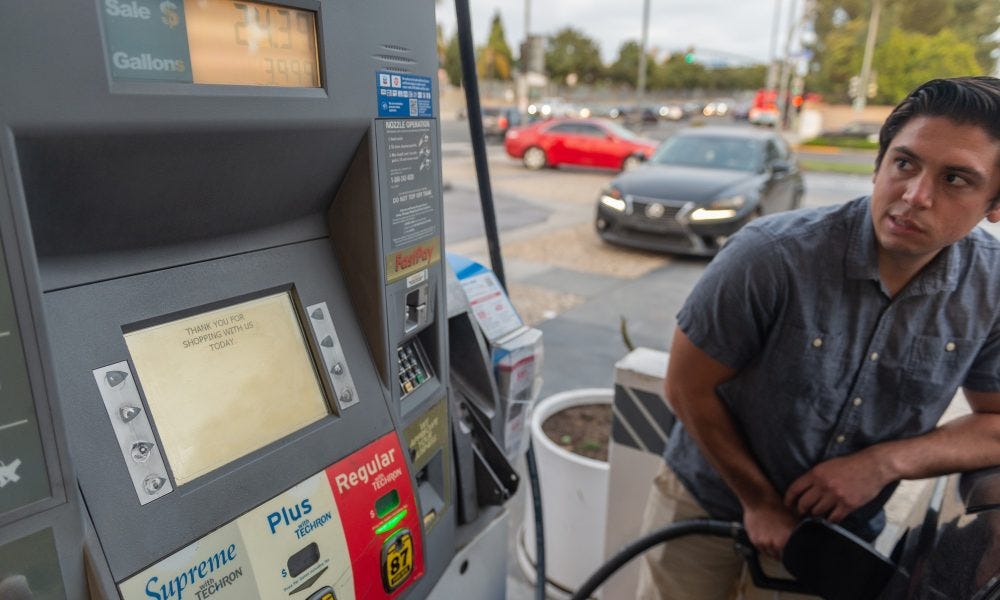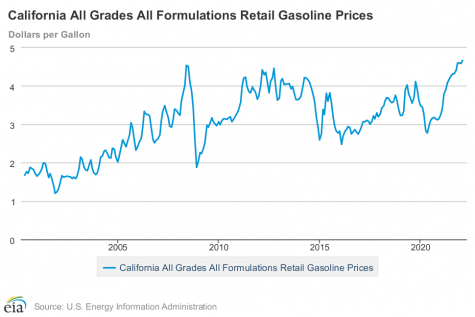Commuting CSULB students upset over gas price inflation
Tania Rangel and Alexis Nakahiro wrote this article for Long Beach State’s Daily Forty-Niner. It is available for republication or reference. If you think their work is important, you can support it here.

President Biden’s ban on Russian-imported gas has raised gas prices in California by nearly 35%, financially hurting CSULB students who regularly commute to campus.
Around 91% of CSULB undergraduates and 72% of first-time, first-year students commute to campus.
Hannah Cruz, a sophomore who studies business economics, commutes from Costa Mesa four days a week. Just last week, Cruz said she spent $65 on a full tank for her 2021 Toyota RAV LE at Costco. She said a full tank typically lasts her a week and a half.
Even Costco, a company notoriously known for their cheaper gas prices, is nearing around $6 a gallon.
Brent crude oil, found in Northwestern Europe, is “commonly used as a global benchmark,” according to the U.S. Energy Information Administration. The price of Brent oil has increased, and continues to do so, due to Russia’s prolonged invasion of Ukraine and imposed sanctions against the country.
Brayla Fills, a second-year business economics major, carpools to school with her friends and said the group is concerned about the rise in gas prices.
“We help whenever we can but it’s just so much,” Fill said. “There’s only so much we can pitch in.”
Transportation services, such as Uber and Lyft, are adding temporary fuel surcharges to “help drivers and couriers.”
Uber announced starting Wednesday, March 16, the company will charge riders an additional $0.45 or $0.55 on each trip, depending on the rider’s location. Lyft will also be adding an additional $0.55 surcharge to their rides, which will go into effect next week.
These new fuel surcharges go straight to the driver to “help offset fuel costs” and keep “more drivers on the road,” according to Lyft.
Abdul Dahdouli, a fourth-year business economics major, said he isn’t too surprised by the increase of gas prices. Dahdouli said it’s something Americans will have to deal with due to circumstances beyond their control.
“I feel like the prices are going to go up eight or nine bucks in the next two months,” Dahdouli said.

Since May 2020 gas prices have gradually increased, according to U.S. Energy Information Administration. In May 2020 gas per gallon was $2.71. Then in January 2021 gas prices rose to $3.26 by the end of 2021 gas per gallon was $4.60.
Gov. Newsom, in his State of the State March 8, said he proposed a $400 rebated to bring relief to Californians with cars registered in the state, including undocumented immigrants. Details of the new policy proposal have yet to be released.



